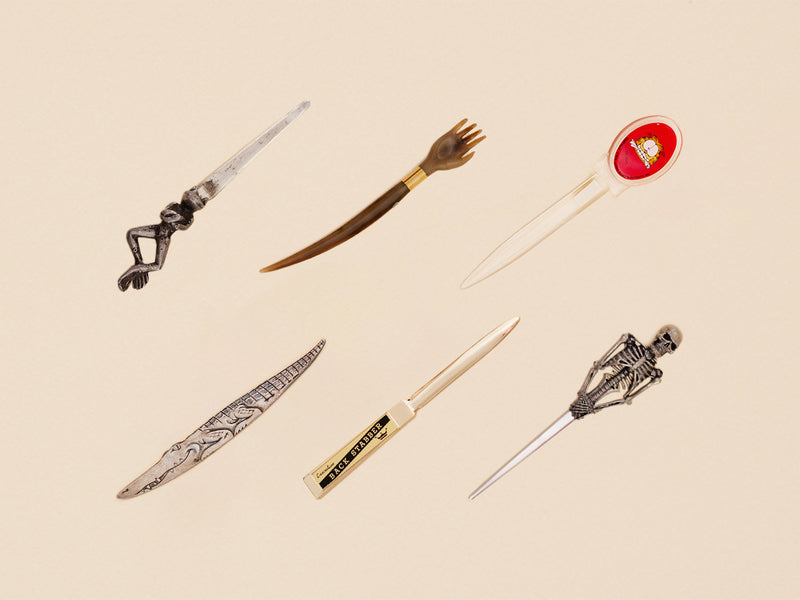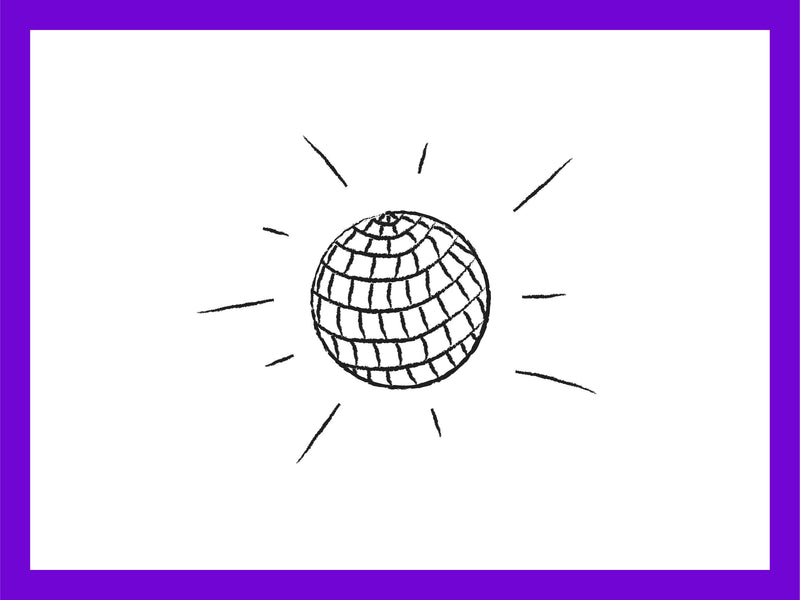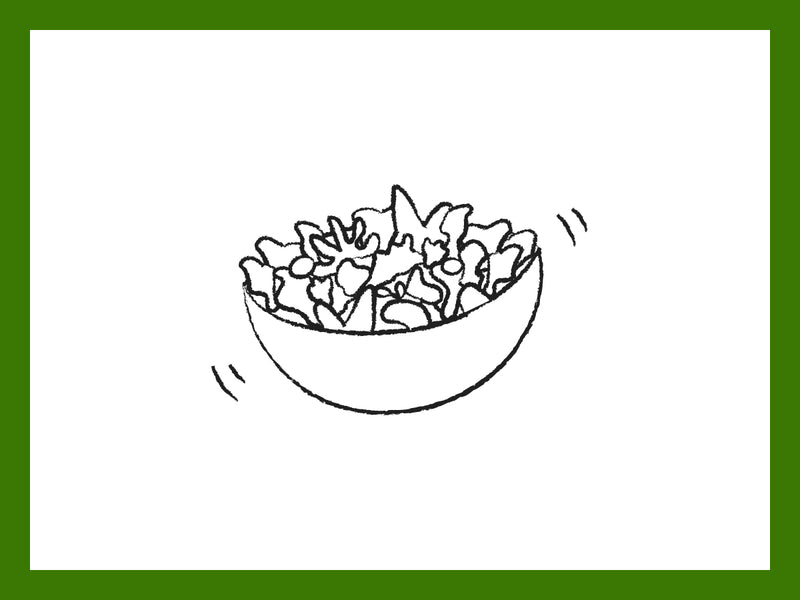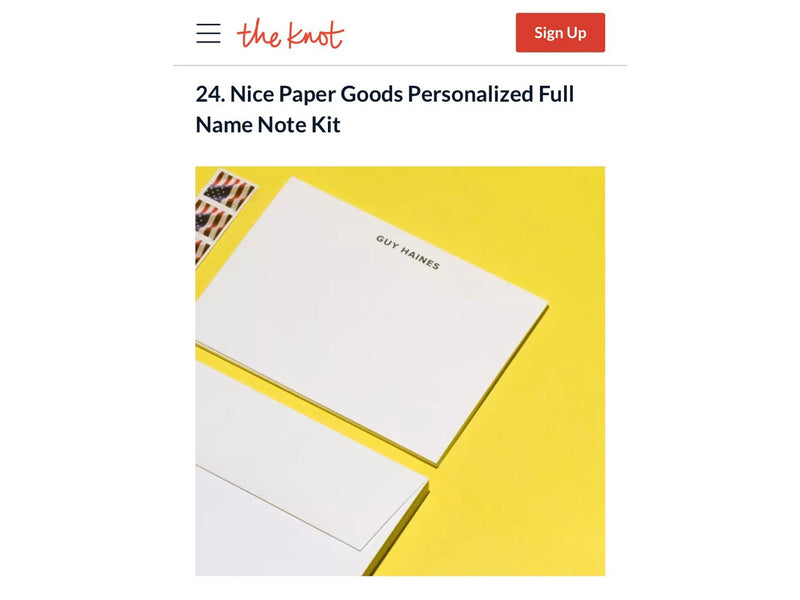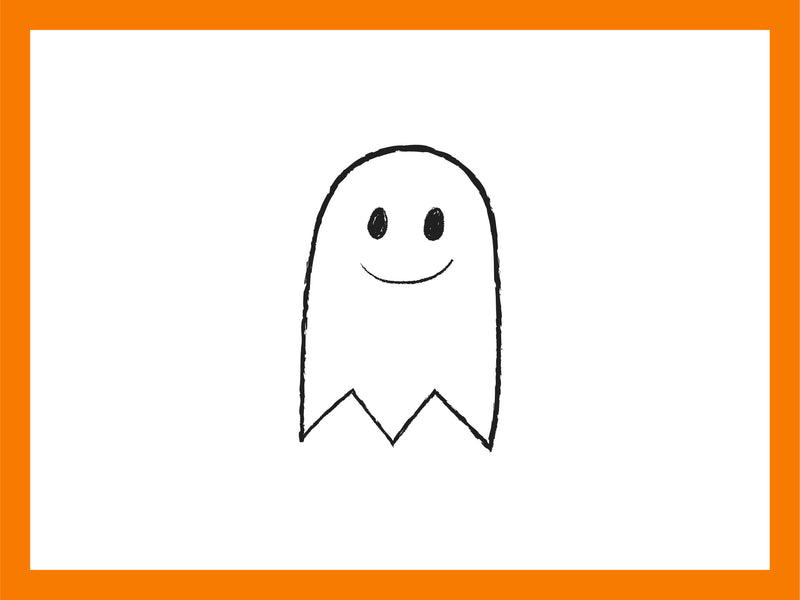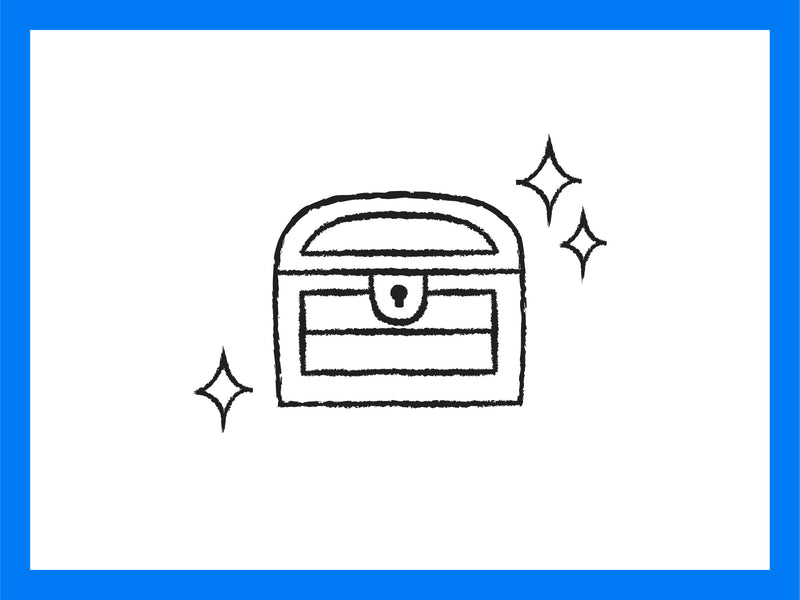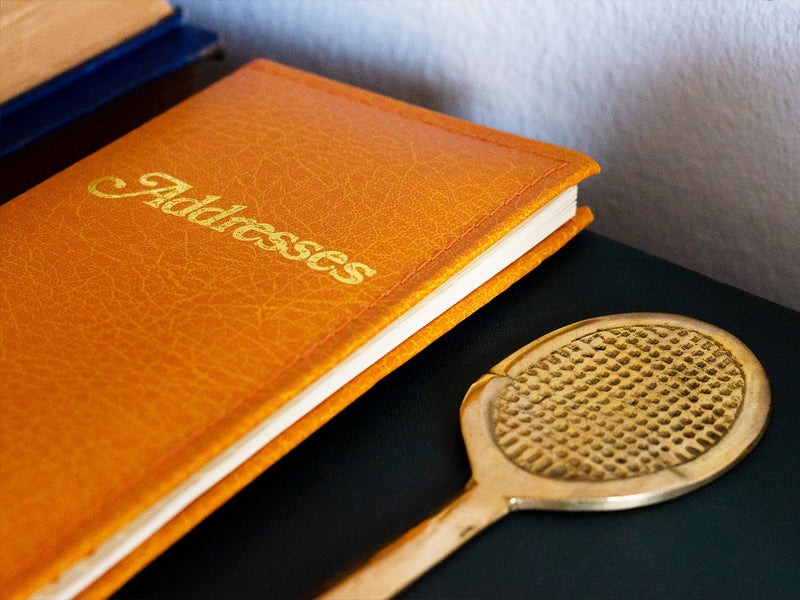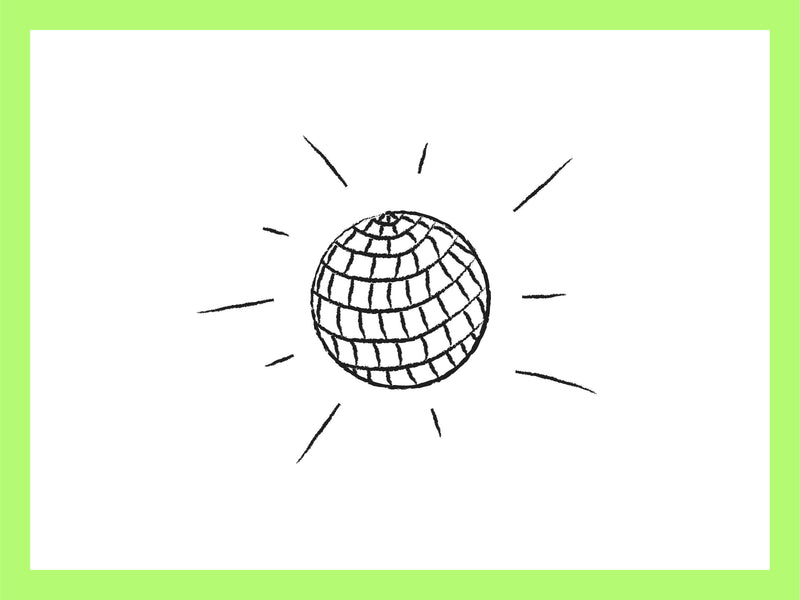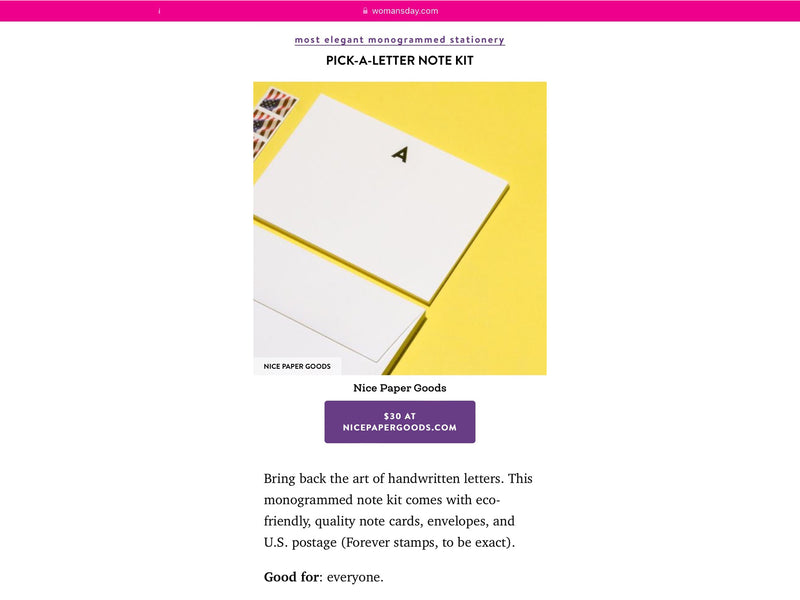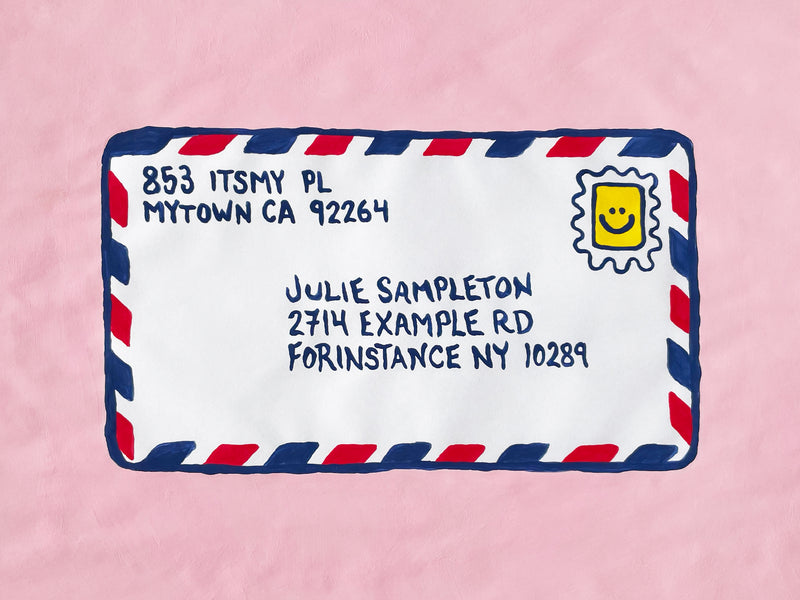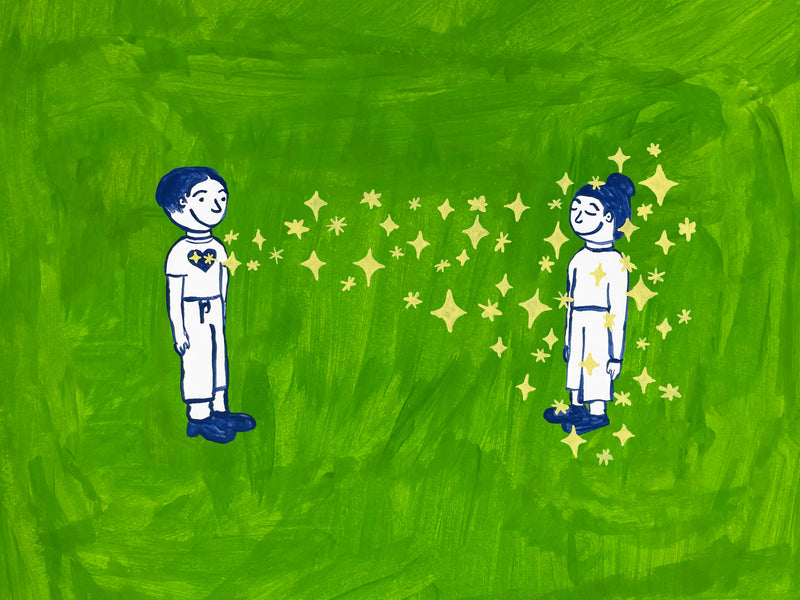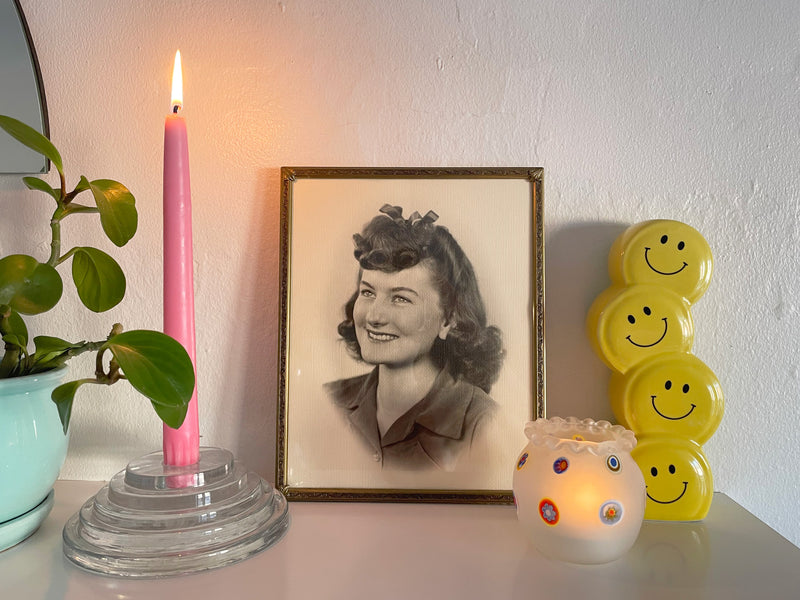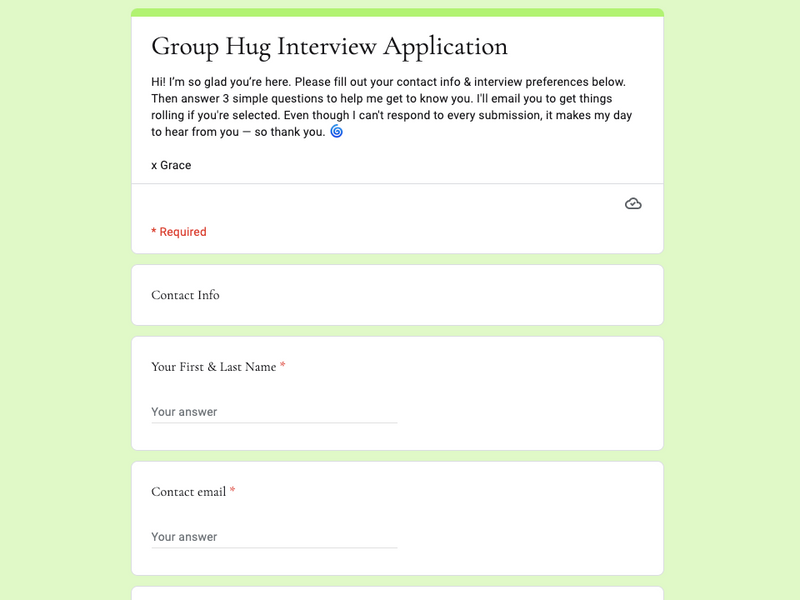
Photo courtesy of Nice Paper Goods
I started learning about loneliness and its health impacts in the summer of 2017 after feeling socially disconnected and overwhelmed with screen time. Spending my days glued to a laptop and smartphone left me feeling overstimulated by technology and superficially connected to other people. When I started researching, I was both comforted and saddened to find out that the majority of Americans were in the same situation: for the first time in history, we spend more time in front of screens than we do sleeping, and more than 3 in 5 of us feel lonely and disconnected. But what really surprised and scared me was how severe of an impact loneliness has on your health.
Loneliness is more than just annoying, it can shorten your life
Scientists have been studying the effects of loneliness for decades. What they’ve found is that it essentially acts as a fertilizer for diseases in your body. Chronically lonely people are at a higher risk for heart disease & heart attacks, Alzheimer’s disease, a weakened immune system, and even metastatic cancer.
See: the Harvard Study of Adult Development, led by Dr. Robert Waldinger
The exciting part of this news was realizing that if I wanted to live a long and healthy life with lower risk for developing these health issues, a preventative step I could take was to strengthen my relationships with others. (But figuring out a practical way to do that in my daily life was easier said than done — more on that in a minute.)
Delayed mainstream awareness of loneliness as a health issue
Public health experts have been freaked out about increased loneliness nationwide for a long time — rates of loneliness have doubled in the last 50 years and the number of Americans with no close friends has tripled since 1985. A lot of scientists understand how dangerous of a public health issue this is, but unfortunately it hasn’t yet reached mainstream awareness.
This information gap means that even though the majority of us are lonely, most of us don’t know that loneliness has the same impact on our mortality risk as smoking 15 cigarettes per day (yes, really). Learning how deadly loneliness can be scared the crap out of me. It became abundantly clear that I needed to do something about it. So I did what I assumed was the most obvious solution: I loaded up all my free time with Facetime calls and IRL hangs with friends and family.
3 weeks in, I was burned out
I was shocked that within less than a month, I was totally drained. Between juggling multiple busy schedules, coordinating across time zones, and dealing with last-minute changes (and cancellations), my effort to strengthen my bonds started to feel more like a chore than a pleasure. I confided in some friends about how I was feeling and to my surprise, they could totally relate. I looked online and learned what we were experiencing is very common.
Geraldine Orentas, Psych Central, medically reviewed by N. Simay Gökbayrak, PhD
Even though I knew I wasn’t alone in feeling this way, I felt defeated. I was embarrassed that I couldn’t keep up with the idealized (probably unrealistic) version of socializing I’d see in movies, shows, and on social media — people going out, having a great time, enjoying a seemingly never-ending amount of energy and stamina.
I was really tempted to give up and go back to “socializing” through my phone and social media. But I knew that hadn’t worked for me in the past — in fact, it was exactly my habit of relying too much on my phone to socialize that got me into this rut in the first place.
I knew I needed to do something new, something different from what I’d tried before. So I did a little experiment…
30 letters in 30 days
I challenged myself to write a letter a day for 30 days. I wanted to see what would happen if I swapped out some of my daily social media time for handwritten correspondence.
By the end, I felt like a new person. I almost couldn’t believe it. I was refreshed, re-centered, and felt noticeably closer to my favorite people. The privacy of letters allowed me to open up in more detail about not only what was going on in my life, but more importantly, how I was feeling about it. I was able to be vulnerable about how I was doing in more genuine depth. And reserving time for it each day really helped me consistently slow down to enjoy some relaxing, nourishing "me time." It felt like the best parts of journaling — slowing down, self-reflecting — with the social benefits of opening up to someone else and, in many cases, beginning an ongoing exchange that continues to bring us closer together.
After the 30 days, now what?
Thanks to my experiment, I knew handwritten correspondence was a highly beneficial practice for me. I was confident I wanted to incorporate it into my life (even if I couldn't keep up with it every single day). But if I wanted to make it a real part of my routine, I also knew that I needed a more streamlined plan for gathering supplies than just grabbing whatever paper, envelopes, and stamps I had around my apartment like I had for my 30-day trial run.
As much as I’d benefited from my initial experiment, I knew that I’d eventually lose momentum and possibly stop writing altogether if it became too much of a headache. I needed a simplified process for getting supplies if I wanted to keep up the good habit.
But when I looked online, I was shocked at how hard it was to find what I was looking for.
My futile search for convenient, eco-friendly, and affordable stationery
I searched and searched… and searched some more. I couldn’t find any stationery that had adapted to the modern age: I was looking for eco-friendly, reasonably priced stationery, bundled with envelopes and stamps in convenience kits that I could order online and get delivered directly to me.
I was bummed (and frankly pretty surprised) that I couldn’t find any all-in-one stationery sets. But when I considered the next best options, I immediately felt like I was stuck between a rock and a hard place.
I found lots of fancy, high quality stationery that was beautiful but out of my budget — especially for weekly, or even daily use. The only stationery I could afford wasn’t environmentally friendly and was usually manufactured abroad by mega-brands.
I was really disappointed because I’d much rather spend my money supporting small, sustainable businesses as opposed to large, faceless corporations. But unfortunately, shopping for stationery made me feel like I had to choose between sticking to my budget vs. sticking to my ethics.
How I could help
Seeing first-hand how hard it was to find convenient, affordable, and sustainable stationery made me understand why handwritten correspondence isn’t widely used as a tool for socializing. But it also helped me realize that if I could provide a practical and ethical stationery option, I could help more people access this tool and make a real difference in their lives.
So later that year, I started my small stationery business Nice Paper Goods with the mission to help people strengthen their relationships.
Stationery designed to combat loneliness
At Nice Paper Goods, we do one thing, and I’m proud to say we do it very well. We design and produce sustainably sourced notes, thanks, and letter kits bundled with envelopes & stamps, all at nearly half the price of other leading brands. The bundling is key — I know from personal experience that the easier it is to do something, the more likely you are to follow through and actually benefit from it.
My goal was to make the world’s most convenient stationery so you can focus your energy on the good stuff — nurturing your relationships. My ultimate wish is for you to feel happier, healthier, and more meaningfully connected to the people you love. It’s been absurdly rewarding to know that we’ve already been able to help others experience the same benefits I discovered:
Kaley
New York, NY
I’m so grateful that I get to help people through Nice Paper Goods and I’m so excited to have Group Hug as a place to build community and expand these reflections and conversations about loneliness & connection.
What to expect
This isn’t a mass-produced corporate blog with content churned out daily for content’s sake. It’s a slowed-down, personal exploration and conversation with others about the spectrum of how we connect and communicate. If I can share information, tips, and stories that make a helpful impact on your life, then I’ll feel like I’ve done my job.
Interviews
Does any of the above resonate with you? Remind you of a personal experience, reflection, or story you'd like to share? Please consider applying to be interviewed for Group Hug. You can learn more and apply on the Interviews page.
Thanks so much for being here. ꩜

